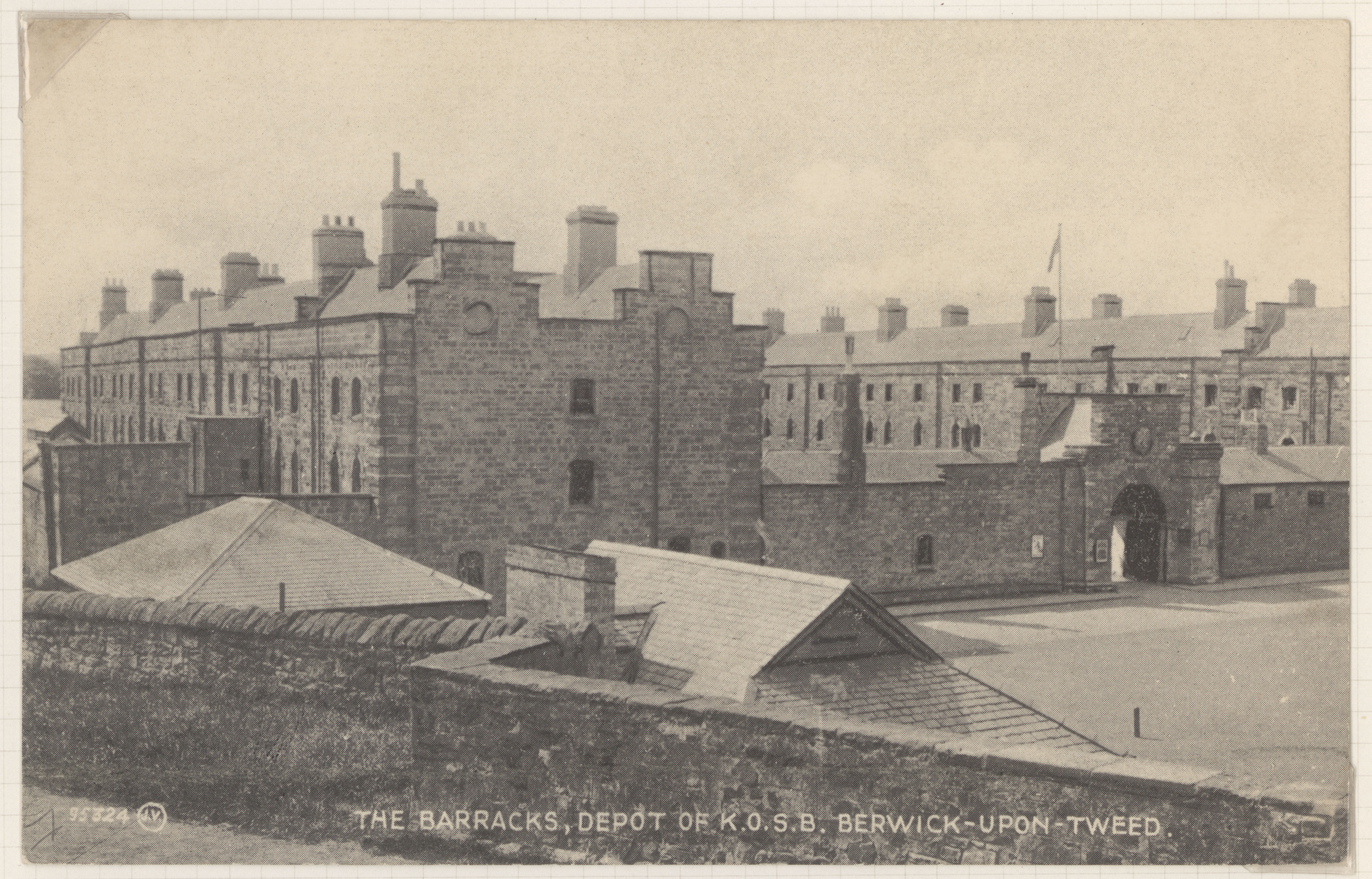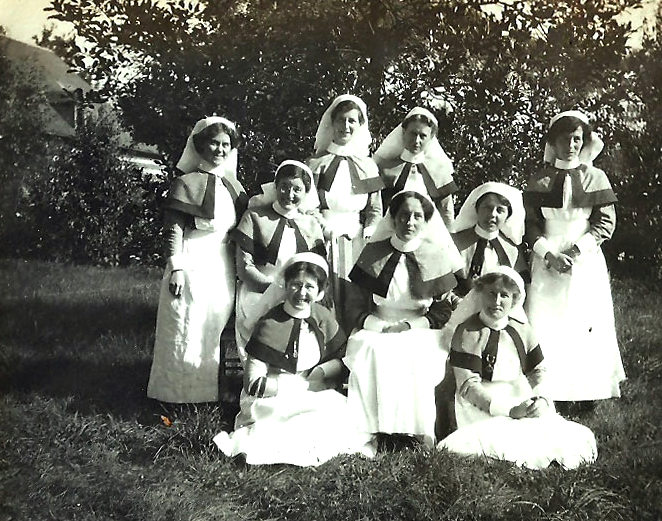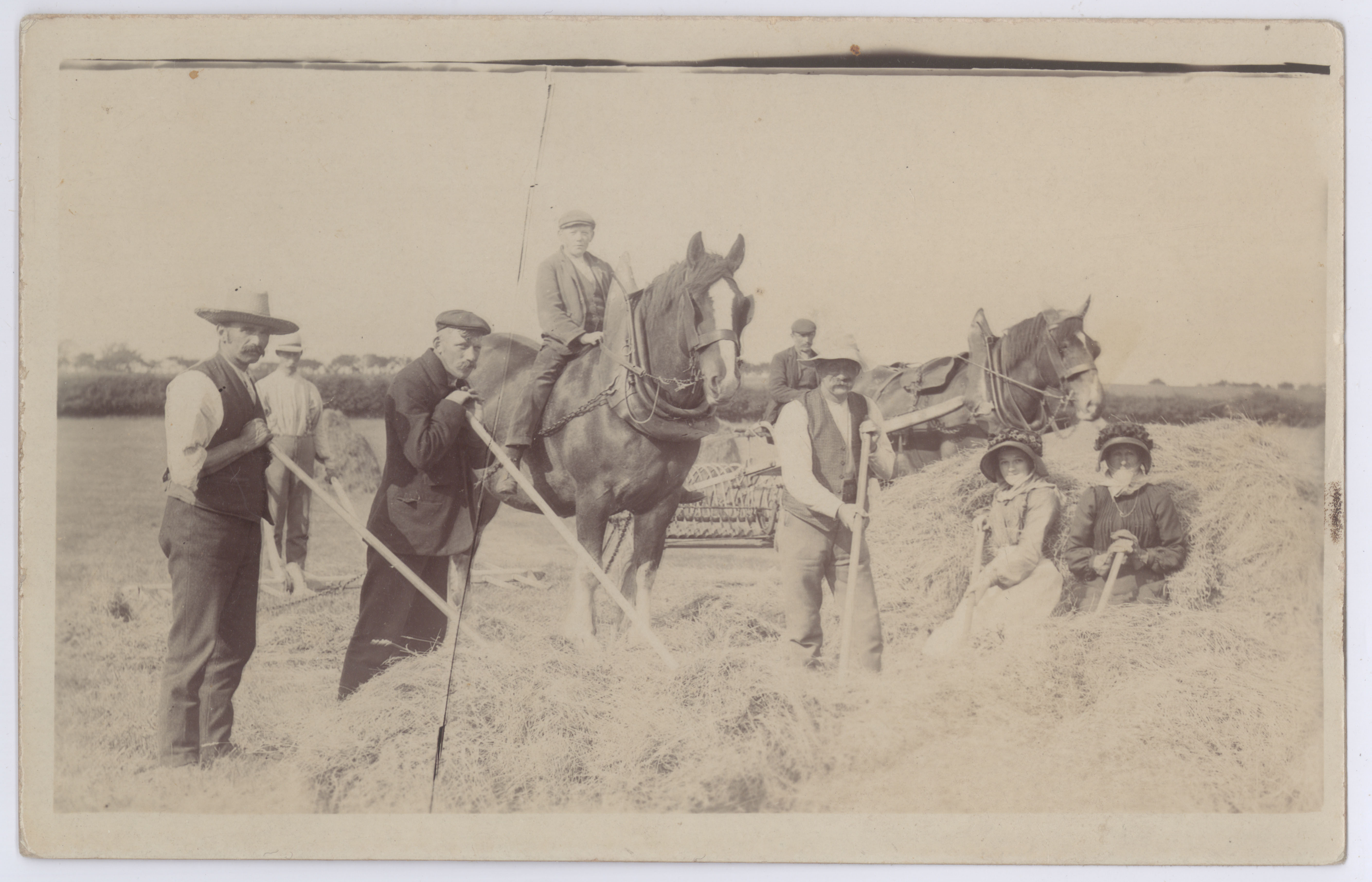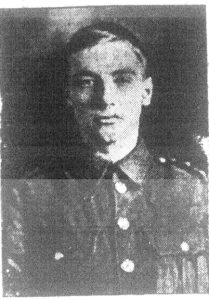BERWICK ADVERTISER, 23 MARCH 1917
WAR NEWS
TWEEDMOUTH LAD’S SERVICE
Alexander Gladstone, son of Mr and Mrs Gladstone, Falloden Terrace, Tweedmouth, and grandson of the late highly respected Thomas Brown, N.E.R. engine driver, Tweedmouth, who met with a tragic end at Goswick some ten years ago. He is 20 years of age, was a territorial, and was mobilised with the 7th Northumberland Fusiliers in August, 1914, put in his time at Gosforth and Cambois, and went with the battalion to France in April, 1915. He was in the fateful battle St. Julien, and was wounded at St. Eloi after which he was confined to hospital for six weeks. For 15 months he was orderly and stretcher bearer under our esteemed townsman, Dr Mackay, was also a pupil under the doctor in the N.E.R. Ambulance Corps, and won 1st class honours in competitions in same. He has since leaving the Ambulance Section of the Northumberland Fusiliers been 8 months in the transport of the same battalion and has been absent from home for 15 months without leave. We wish him continued good luck and safe home, as he has like many others, some terrible experiences to his credit, although he is so young. Previous to the war he was a fireman with the N.E.R. Co.
LOCAL NEWS
Thanks. – The Committees of the Berwick Ladies’ District Nursing Association, and the Berwick-on-Tweed Prisoners of War Fund, would like to take this opportunity of rending their very grateful thanks to Mr Dudgeon and his concert party for the handsome sum of £38, which has been equally divided between them. These committees feel assured that they and the public generally, owe these friends a debt of gratitude, not only for the very acceptable addition to the funds of both Associations, but for a most enjoyable and successful evening’s entertainment. The Committee of the Prisoners of War Fund would like, at the same time, to thank those friends who so successfully organised a concert at Spittal for their friends, and to the promoters of other entertainments, sales of work, etc., who have so generously given of their takings for the Prisoners.
Camp Gardens – Hutments and Barracks. – A Scottish Command Order states – Attention is drawn to the urgent need of making the most of every source of food and of supplementing the messing of the troops with a variety of vegetables grown on the spot. A proportion of the vegetables necessary for the men can, in the majority of hutment camps and barracks, be grown in plots adjacent to the lines, and the attention of Command Officers is drawn to the need of prompt action.
Presentation at the Barracks. – On Monday evening an interesting presentation was made in the Sergeants’ Mess at the Berwick Barracks, when Sergt. W. Tait, of the K.O.S.B., was presented with a handsome marble clock and a pair of bronze side ornaments on the occasion of his marriage which took place on Thursday, 22nd inst.

The presentation was made in a neat and appropriate speech by Sergt. Major J. B. Westle on behalf of the members and honorary members of the Sergeants Mess at the Depot, and was suitably acknowledged by the gallant recipient. Sergt. Tait has 23 years service, has been twice at the front, and has been twice wounded. He was a time-expired soldier, and re-joined his old regiment at the call of duty. He is native of Glasgow. The gifts were supplied by Messrs Ross, jewellers, Bridge Street, Berwick.
GRAND CONCERT
ON BEHALF OF
BERWICK NURSING ASSOCIATION
AND
PRISONERS OF WAR FUND
A crowded house met in the Queen’s Rooms, Berwick, on Thursday, March 15th, to enjoy a concert of unusual excellence given by local amateur artistes of undoubted ability.
The Chairman, Captain C.B. Balfour of Newton Don, Kelso, who spoke of the excellent work done by the nurses, drew special attention to the fact that the professional nurses had not only their own work to do, but were engaged besides in the training of novices which it added greatly to their labours.

Captain Balfour was of opinion that our prisoners of war were in great need of help and sympathy. His own son had been a civilian prisoner in Germany since war broke out and, bad as the lot of the civilian prisoner had been we could be sure that the lot of the soldier prisoner was worse. Before the concert opened Captain Balfour said that many of the artistes were well known to him. They had come to Newton Don once every month for more than a year, and he assured the audience that if their services were as much appreciated in Berwick as they are at Newton Don, a great treat was in store for them. (Applause).
Considerable changes had to be made. Private Bell, we regret to say, is in hospital, Lance Cpl. Henderson was indisposed, and Sgt. Clark had a bad throat. The absence of these skilled soldier artistes was much regretted, but their places were ably filled by Mrs R. H. Wilkinson (piano) and Mr James Winram, the celebrated Scottish violinist from Edinburgh, whose services were fortunately secured.
The concert opened with an instrumental trio – Mr Winram, violin; Private C. Irwin, “cello; Mrs R. H. Wilkinson, piano. It was seen at once that all three were expert musicians who acquitted themselves with as much ease and facility as if they had been playing together for years.
ARRIVAL OF SOLDIER SUBSTITUTES AT BERWICK
In nearly all cases of farm labourers, passed for general service, which have come before recent Tribunals at Berwick, the men have been ordered to serve when a suitable substitute could be found. Then the young ploughman, or shepherd, or carter has been allowed to return to his work, and nothing further has happened. Now, however, things have begun to happen. A week ago a contingent of 120 soldiers came to Berwick, nearly all men who have been doing their bit in France, and who now, because they are wounded, or for some other reason, have been placed in the C2 category. They have been ploughmen, carters, joiners, general labourers, and poultry farmers in civil life, and are as alert and keen a set of men as one could wish to see, all as eager to do their part in providing food for the people as they were eager in other days to help to keep the enemy from our shores. They are drawn from different regiments, among them are a very considerable number of Lancashire and Yorkshire men. The officer in charge is a qualified and experienced agriculturist.

Many farmers who came to the market on Saturday said they had heard rumours of the arrival of the substitutes, but had no definite information about them. They seemed much relieved to find so many men, among them who had had experience in agriculture, and find that arrangements were in the hands of an officer with such splendid agricultural qualifications. The chief objection raised by local farmers to the substitution scheme was, “Where are these men to be housed? The farm cottages are too small to cope with even one extra person”. Another farmer, hearing this objection, took a more cheerful view. “Surely that is not a difficulty we need trouble about” he said. “I am sure we can rig up something quite as comfortable as many a billet for our ploughmen substitutes, even if we can’t provide them all with cottages.”


